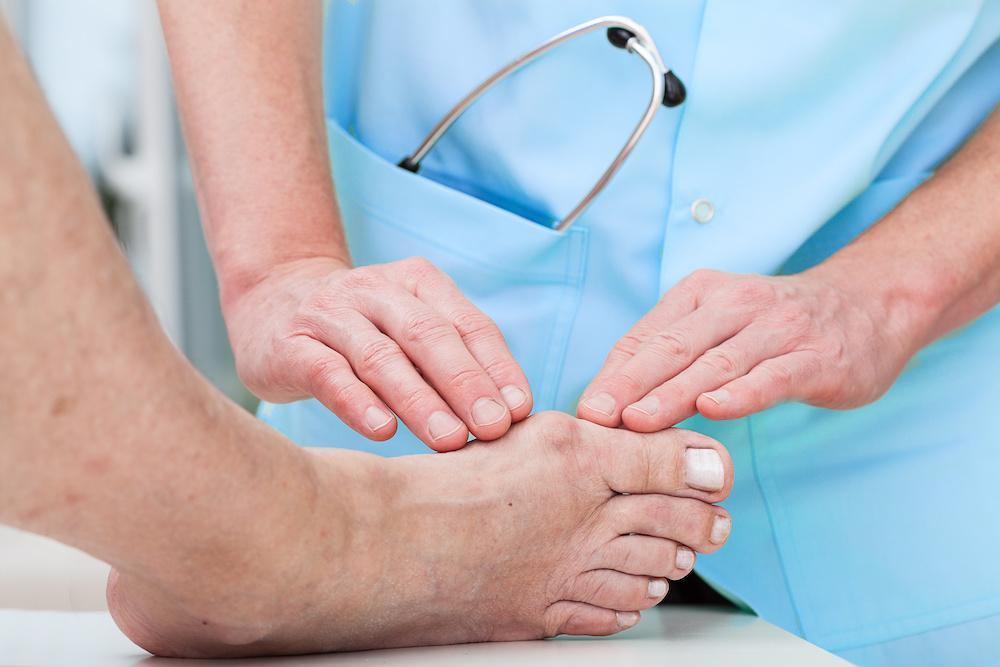
Can Orthotics Correct My Bunions?

There are plenty of issues that can affect your feet, including bothersome bunions. When a bunion forms, it makes everything on your feet slightly more complicated. Unfortunately, bunions don't resolve on their own; you need treatment to keep them from worsening or to eliminate them altogether.
If bunions are bothering you, Dr. Marque A. Allen and the Sports Medicine Associates of San Antonio team provide several effective treatments for bunions. From offices in San Antonio and Alamo Heights, Texas, Dr. Allen offers a customized treatment plan tailored to your needs, from orthotics to surgery.
Understanding bunions
Bunions, also known as hallux valgus, are a deformity that often happens to your big toe joint. The deformity leads to a bump on the side of your big toe that is sometimes painful.
A bunion forms over time from excess pressure on the metatarsophalangeal (MTP) joint of your big toe. The pressure pushes your joint out of alignment, causing your bones to shift and the bump to form.
Bunions have several causes, including the bone structure in your feet and how you walk. These issues lead to pressure on your MTP joint, causing a bunion. Although tight-fitting shoes and standing for long periods worsen your bunions, they don't cause the problem.
Other than the bump on the side of your big toe, other symptoms associated with bunions include:
- Numbness, especially in your big toe
- Formation of corns or calluses
- Stiffness in your big toe
- Pain with movement of your toe
- Hammertoes
You may also find it hard to wear regular shoes when you have a bunion. Your normal shoes often feel tight and put pressure on the bony bump on your toe's side, which only worsens your symptoms.
What are orthotics?
Orthotics are specialized inserts for your shoes that change the way you walk for the better. You can get orthotics over-the-counter or from Dr. Allen at our office.
Each type of orthotic works differently to correct issues in your feet. They provide you with the proper arch support and give you comfort when you're on your feet.
Orthotics also help improve the alignment of your feet, which may help prevent further issues with bunions and other problems. When worn regularly, they can also improve your foot mechanics to reduce pressure on specific areas of your foot.
Custom orthotics from Dr. Allen are your best option when you have a specific foot issue, like bunions. They're customized to your foot structure to provide you with the most comfort and stability.
Can you heal a bunion with orthotics?
Orthotics are one of the many treatment options Dr. Allen provides when you have a bunion. When you have an uncomfortable bunion that doesn't affect your daily activities or ability to walk, orthotics are a great option to support you.
When used early on, orthotics can stop your bunion from getting worse. Dr. Allen uses custom orthotics specifically designed for your foot structure to give your feet the support and stability they need to prevent further issues.
Along with orthotics, Dr. Allen may suggest different shoes with a wider toe box to take pressure off your bunion. He may also use other treatments with orthotics to keep your bunion from progressing. These treatments include:
- Bunion pads or splints
- Physical therapy
- Pain medications
- Steroid injections
Orthotics paired with other bunion treatments relieve discomfort and allow your foot to stay in alignment, preventing your bunion from getting worse.
However, if your bunion is extremely painful or affects your daily activities, orthotics may not be enough to correct the deformity in your joint. In this case, Dr. Allen may recommend surgery, especially if you've tried other conservative options without relief.
Don't hesitate to call the Sports Medicine Associates office most convenient to you today to schedule an appointment. You can also request an appointment on our website.
You Might Also Enjoy...


What Can Lapiplasty® Fix?

4 Tips For Running With Achilles Tendonitis

Ankle Sprain vs Fracture: How to Spot the Difference

Will Plantar Fasciitis Go Away on Its Own?


